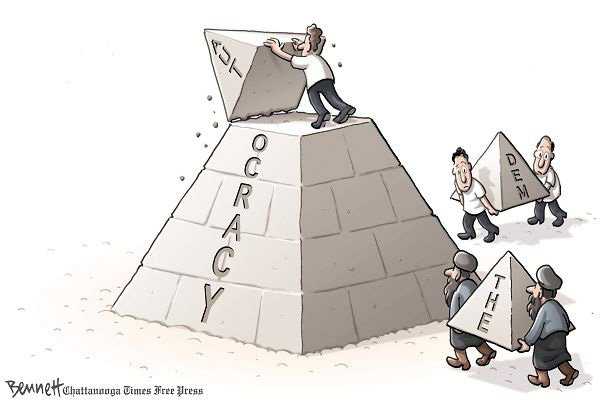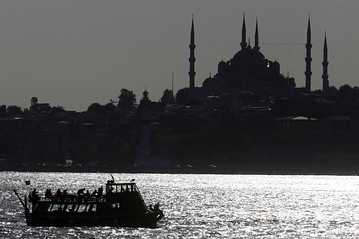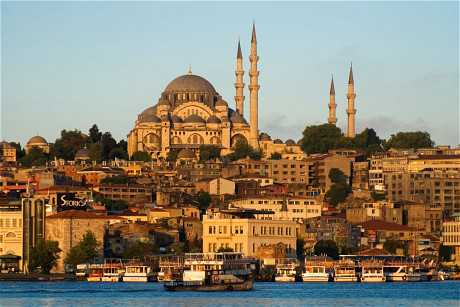Turkey, as a Muslim-majority country, is the only member of NATO and on
candidate member of the European Union. Assertive secularism, multiparty
democracy, and military interventions are other puzzling aspects of
Turkish politics. With its rising activism in the Middle East, Caucasus,
and Central Asia, Turkey has also become an influential actor in world
politics. This conference aims to present an integrated picture of Turkey
by bringing together comparative perspectives on its past, present, and
future, and delving into such issues as the legacy of the Ottoman Empire,
secularism, religion, democracy, civil-military relations, and the
European Union membership.
Contact: Ahmet Kuru
E-mail: ak2840@columbia.edu
Date: March 6-7, 2009
Time: 9:00 am to 5:30 pm
Location: International Affairs Building 1501, Columbia University
Co-sponsored by Center for the Study of Democracy, Toleration, and
Religion; Institute for Religion, Culture, and Public Life; and Middle
East Institute of Columbia University; and Institute for Turkish Studies
Friday, March 6
9.00 – 9.30: Coffee and rolls
9.30 – 9.45: Welcome: Alfred Stepan
9.45 – 12.45: From the Ottoman Empire to the Turkish Republic
Chair: Rashid Khalidi (invited)
Discussant: Richard Bulliet
Karen Barkey, “Empire and Religious Diversity: The Ottoman Model in
Contemporary Perspective”
Sükrü Hanioglu, “The Historical Roots of Kemalism”
Nur Yalman, “‘The Three Ways of Politics’ Revisited: Whither the People of
the ‘Sublime State’?”
12.45 – 2.30: Lunch
2.30 – 5.30: Religion, Religious Parties, and Democracy
Chair: David Cuthell
Discussant: Mirjam Kunkler
Alfred Stepan, “Variations of Laïcité: Comparing Turkey, France, and Senegal”
Stathis Kalyvas, “Does Christian Democratic Experience Travel in the
non-Christian World?”
5.30: Reception
Saturday, March 7
9.00 – 9.30: Coffee and rolls
9.30 – 12.30: The AKP Government and the Military
Chair and discussant: Alfred Stepan
Ümit Cizre, “Society as the Battleground for Hegemony: Secular Military
and the AKP”
Ahmet Kuru, “Politicized Military and the Consolidation of Democracy in
Turkey”
12.30 – 2.30: Lunch
2.30 – 5.30: Politics of the Future: European Union, Constitution, and
Democratization
Chair and discussant: Joan Scott
Joost Lagendijk, “Turkey’s Membership to the European Union: Perceptions
and Processes”
Andrew Arato, “Legality and Legitimacy in the Making of a New Turkish
Constitution”
Ergun Özbudun, “Turkish Democracy in Constitutional Crisis”
Short Bios
Andrew Arato is Dorothy Hirshon Professor of Political and Social Theory
at the New School for Social Research. He is the author of Civil Society,
Constitution, and Legitimacy and Constitution Making under Occupation: The
Politics of Imposed Revolution in Iraq, and co-author of Civil Society and
Political Theory.
Karen Barkey is Professor of Sociology at Columbia University. She is the
author of Empire of Difference: The Ottomans in Comparative Perspective
and co-editor of After Empire: Multiethnic Societies and Nation-Building,
the Soviet Union and the Russian, Ottoman, and Habsburg Empires.
Richard Bulliet is Professor of History at Columbia University. He is the
author of The Case for Islamo-Christian Civilization, the editor The
Columbia History of the Twentieth Century, and the co-editor of The
Encyclopedia of the Modern Middle East.
Ümit Cizre is Professor of Political Science at Bilkent University,
Turkey. She is the author of The Politics of the Powerful (in Turkish) and
the editor of Secular and Islamic Politics in Turkey: The Making of the
Justice and Development Party and Almanac Turkey 2005: Security Sector and
Democratic Oversight.
David Cuthell is the Executive Director of the Institute of Turkish
Studies in Washington D.C. He also teaches Turkish politics as Visiting
Adjunct Professor at Columbia University and Georgetown University.
Nilüfer Göle is Professor of Sociology at Ecoles des Hautes Etudes en
Sciences Sociales, France. She is the author of The Forbidden Modern:
Civilization and Veiling and Interpenetrations: Islam and Europe (in
French).
Sükrü Hanioglu is Professor and the Chair of Near Eastern Studies at
Princeton University. He is the author of Brief History of the Late
Ottoman Empire, Preparation for a Revolution: The Young Turks, 1902-1908,
and Young Turks in Opposition.
Stathis Kalyvas is Arnold Wolfers Professor of Political Science and
Director of the Program on Order, Conflict, and Violence at Yale
University. He is the author of The Logic of Violence in Civil War and The
Rise of Christian Democracy in Europe.
Rashid Khalidi is Edward Said Professor of Arab Studies at Columbia
University. He is the author of The Iron Cage: The Story of the
Palestinian Struggle for Statehood and Resurrecting Empire: Western
Footprints and America’s Perilous Path in the Middle East.
Mirjam Künkler is Assistant Professor of Near Eastern Studies at Princeton
University. She is the co-editor of Comparative Study of the Role of
Religious Institutions in Democratic Transition and Consolidation
Processes (in German)
Ahmet Kuru is Postdoctoral Fellow at the Center for the Study of
Democracy, Toleration, and Religion at Columbia University and Assistant
Professor of Political Science at San Diego State University. He is the
author of Secularism and State Policies toward Religion: The United
States, France, and Turkey.
Joost Lagendijk is a Dutch politician from Green Left. He is a Member of
the European Parliament and its Committee on Foreign Affairs. He is also
the Chairman of the Delegation to the European Union – Turkey Joint
Parliamentary Committee.
Ergun Özbudun is Professor of Law at Bilkent University, Turkey. He is the
author of Contemporary Turkish Politics: Challenges to Democratic
Consolidation and the co-editor of Atatürk: Founder of a Modern State. He
recently chaired the academic committee to draft a new constitution for
Turkey.
Joan Scott is Harold F. Linder Professor at the School of Social Science
in the Institute for Advanced Study. She is the author of Only Paradoxes
to Offer: French Feminists and the Rights of Man, Parité: Sexual Equality
and the Crisis of French Universalism, and The Politics of the Veil.
Alfred Stepan, Wallace Sayre Professor of Government, director of Center
for the Study of Democracy, Toleration, and Religion, and co-director of
the Institute for Religion, Culture, and Public Life at Columbia
University. He is the author of Arguing Comparative Politics and the
co-author of Problems of Democratic Transition and Consolidation.
Nur Yalman is Professor of Anthropology at Harvard University. He is the
author of Under the Bo Tree and “Some Observations on Secularism in Islam:
The Cultural Revolution in Turkey,” Daedalus, and co-author of A Passage
to Peace: Global Solutions from East and West.
Link:






